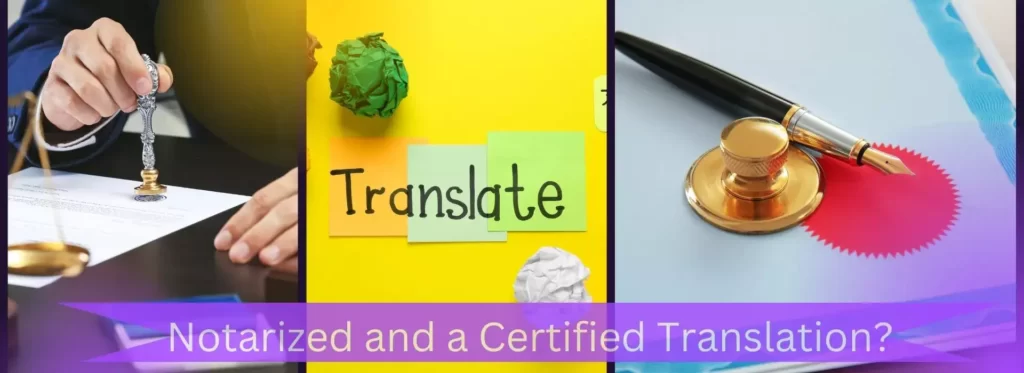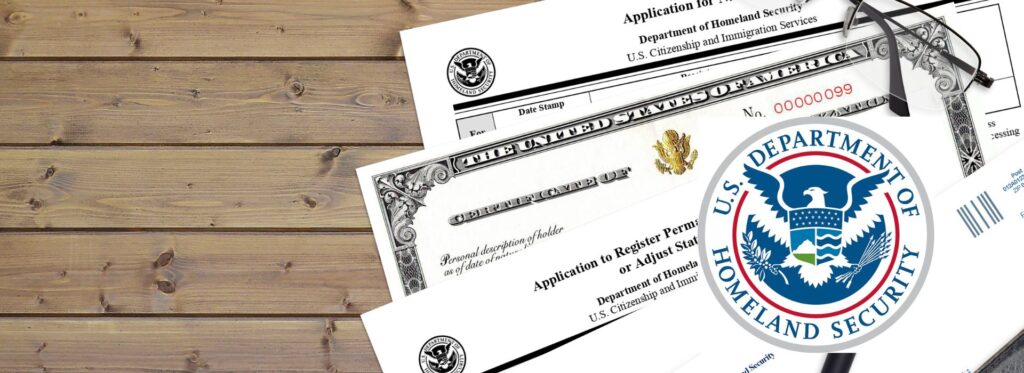There are several cases where you may be required to get a document translated. However, in some circumstances, document translation alone may not be enough. For instance, when it comes to legal documents, it is necessary to prove that the translation service you used was qualified and accurate. You will need one of two things to do this: a certified or a notarized translation.
Some people think these two are the same, which makes it very confusing especially when used for immigration purposes in the United States. But what’s the difference between a notarized translation and a certified translation? Read further to find the answer to these questions.
Certified Translations
Certified translations require hiring the service of a qualified professional translator or Language Service Provider (LSP). In this process, the translated document should come with a signed document declaring this matter. This document clearly states the name of the professional translator, their signature, the date of document translation, and their contact information. This proof or validation is also known as the Certificate of Accuracy.
The best thing about going with certified translations is that you can be sure of the excellent quality, which guarantees that you will clearly send the message to the recipient of the document. For best results, it is recommended to partner with trustworthy translation companies with a team of highly experienced translators. Usually, these companies have a translator and an editor to ensure that the final copy has no errors.
A certified translation that is high in quality meets these standards:
- Full translation of the document
- Translation including all marks, stamps, signatures, and seals.
- The translation copy must visually look similar to the original copy.
- If you are using certified translation for transacting with US-based agencies or offices, it is highly suggested that you contact a reputable translation company.
- For best validation, it must also be notarized, as well.
What is it Used For?
Certified translation is important when you are submitting legal documents. The most common examples include:
- Business contracts
- Service agreements
- Birth certificate
- Death certificate
- Marriage certificate
- Adoption documents
- Immigration requirements
- Court transcripts
- Student applications overseas
- Transcript of records
- Diplomas
- Criminal records
- Patents
- Medical reports
Notarized Translations
Notarized translation is another option that you can use for document translation, however, this one carries the emphasis on following the procedure while not having 100% assurance of the quality of document translation. Basically, in this method, any translator can bring their translated work to a notary public, who is someone with government authorization to authenticate and oversee documents.
How does this method work? In this process, the translator shows the notary public the document and swears to them that the translation is accurate and of the best quality. The translator will also be required to sign an affidavit that also carries the signature and seal of the notary public.
This means that the notary public only verifies the translator’s identity, but they are unable to verify how accurate the document is.
What is it Used For?
Notarized translation is commonly used for the following documents:
- Educational certificates
- Diplomas
- Professional qualifications
- Some legal documents like obtaining a driver’s license
- Some court documents like divorce notification
Should You Choose a Notarized Or Certified Translation?
Both notarized and certified translations offer value to their customers. To decide on which one you should go for, verify the type of document that you want to be translated and identify whether the recipient office and country have their own specific requirements.
For instance, the US Citizenship and Immigration Services used to require that the documents must be both notarized and certified. However, they only require certified document translations at present.
Professional Language Services by Translingua
With over four decades of experience, Translingua offers professional notarized and certified translation services custom-tailored for your needs. We pride ourselves on our great team of translators that can provide support for over 6,500 languages and dialects used all over the world. At Translingua, we guarantee the exclusive use of human translators to ensure that the documents will be as accurate, authentic, and honest as expected.



